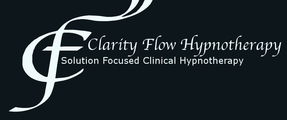|
How comfortable are you with rewarding yourself? Should we be getting more comfortable with it, why and in what way? In this video Maral discusses the relationship between culture, self-reward motivation and neuroscience. For more support to make sustainable and lasting changes, you can book a free initial consultation and discuss how Maral at Clarity Flow Hypnotherapy could help you with your process.
Maral Kojayan MA HPD Clinical Hypnotherapist www.clarityflowhypnotherapy.com TO BOOK A FREE CONSULTATION* FOR CLINICAL HYPNOTHERAPY CLICK HERE
0 Comments
What is negativity bias and could scheduling worry time help you hack the brain's negativity bias, and give you more overall peace of mind? You're noticing the brain's negativity bias when: - you recall negative comments more than complements - you dwell on unpleasant experiences more than pleasant ones - you give more weight to the cons than the pros in your weighing things up (your evaluations). There are many things that can be done to 'hack' that negativity bias, this technique is just one of many... For more support to help you make sustainable and lasting changes, you can book a free initial consultation and discuss how Maral at Clarity Flow Hypnotherapy could help you accelerate your process.
Maral Kojayan MA HPD Clinical Hypnotherapist www.clarityflowhypnotherapy.com TO BOOK A FREE CONSULTATION* FOR CLINICAL HYPNOTHERAPY CLICK HERE Nuggets of Neuroscience 3: Why can’t we just make a decision to change a habit, and do it? Here is another 3 min. bitesize bit of neuroscience to help answer these questions and some thoughts and tips to help with having the right mindset to make things easier. Understand how thing work can help us come up with smarter solutions. If you prefer support, you can book a free initial consultation to discuss how hypnotherapy sessions with me, at Clarity Flow Hypnotherapy, could strenghten your process.
Maral Kojayan MA HPD Clinical Hypnotherapist www.clarityflowhypnotherapy.com TO BOOK A FREE CONSULTATION* FOR CLINICAL HYPNOTHERAPY CLICK HERE Nuggets of Neuroscience 2: Stop Identifying With Your Thoughts and Habits. Another 3 minute video as part of the nuggets of neuroscience series. Do you find yourself saying things like, “this is me”; I’m an anxious person, I’m the melancholic type, I’m a perfectionist... Once you are aware of this, you are in a better position to start making changes... If you prefer support, you can book a free initial consultation to discuss how hypnotherapy sessions with me, at Clarity Flow Hypnotherapy, could help you accelerate your process.
Maral Kojayan MA HPD Clinical Hypnotherapist www.clarityflowhypnotherapy.com TO BOOK A FREE CONSULTATION* FOR CLINICAL HYPNOTHERAPY CLICK HERE Nuggets of Neuroscience 1: How to make conscious changes if 95% of brain activity is subconscious? The next few short videos will be about some useful nuggets of neuroscience, because knowing a few simple 'mind-facts' can help us understand how to make changes. Here's the first one: "How to make conscious changes if 95% of brain activity is subconscious?" about subconscious brain activity and ways to speak it's language. More to come... If you're interested in regular one-to one sessions, I am happy to offer you a free initial consultation to give you insights into the working of our brains and how sessions with me, at Clarity Flow Hypnotherapy, could help propel you forwards in being at your best and making what you want happen for yourself.
Maral Kojayan MA HPD Clinical Hypnotherapist www.clarityflowhypnotherapy.com TO BOOK A FREE CONSULTATION* FOR CLINICAL HYPNOTHERAPY CLICK HERE  Did you know that our brains can't tell the difference between what we call real and what we imagine or visualise? It's probably something that most of us haven't stopped to consider, yet this is a fact worth knowing. Especially when it comes to learning or developing new habits, which we could call programming the brain. It turns out that the brain can be programmed equally well by practising an activity just in the mind, using our imagination and visualisation, as by physically practising the activity. Dancers, actors and instrument players have known this intuitively for centuries as they are used to rehearsing by running a piece through in their mind or by 'marking' things through. In fact, we probably all know this intuitively because almost everyone has experienced waking up from a dream feeling emotionally moved by how real it felt. What most of us have sensed to be true through experience has now been proven, through scientific study, to be a measurable fact. A study, published in the Journal of Neurophysiology in 1995, tested this by asked two groups of people to practice learning a 5 finger piano exercise over 5 days. They found there was almost no difference in brain changes between the group which practised the exercise physically on the piano and those who practised only in their mind, using their visualisation. The significance of this study is that it showed the brain was just as plastic—meaning just as able to learn and change—with mental effort directed at learning something specific as with physical effort to do the same thing. This suggests that if a person spends time visualising in detail something that's practically doable, the brain develops in a very similar way as if they were to actually do it physically. This has huge and far-reaching implications because it means that when we focus our mind and repeatedly imagine doing something well, we'll get better at doing it well. The reprogramming of the mind could be applied to many areas where people sometimes struggle in life, it could be to improve confidence in work or social settings or public speaking, it could be getting better at getting up on time in the mornings or it could be retraining yourself to be calmer or kinder to yourself or other people in your life. If you can simply imagine yourself in the new way, you are already starting the rewiring for that change of habit to happen easier. Conversely, what it also means is that if you don't see yourself changing and improving, if you don't see yourself as overcoming your anxiety or lack of confidence or if you cannot see a realistic path to uplifting yourself, you make it harder for yourself to put these changes you want into practice. And worst still, if you practise giving yourself negative messages, such as “I'm no good at...”, “I'll never be able to...”, “I'm such a...” all you do is teach and train your brain to get very good at thinking and being what you don't want to be. Moreover, as your brain can't tell the difference between what you're really experiencing now and what you're imagining or remembering, whatever circuit you light up in your brain will be real for you. Even if it's an old feeling from years back or something completely imagined, you live it as though it's real in the present moment. This alone is reason enough to learn to choose your thoughts with care. Ultimately, what this study proves is something I have seen a great deal of evidence for in my own Clinical Hypnotherapy practice. This study has proven both how powerful visualisation is and how a person's mind is plastic; able to change and create new patterns. At Clarity Flow Hypnotherapy, we use the power of visualisation within hypnosis to help individuals make significant important changes and take great leaps forward in many areas of their lives. In the process, a person learns to consciously choose their thoughts with care and become very mindful of the movements of thought in their mind. If you'd like to teach your mind to practice you preferred thought and make positive practical changes in your life, you can book a free Initial Consultation to get started with this rewarding process. TO BOOK A FREE CONSULTATION FOR CLINICAL HYPNOTHERAPY CLICK HERE Maral Kojayan MA HPD Clinical Hypnotherapist www.clarityflowhypnotherapy.com Reference: Pascual-Leone, A. et al., 'Modulation of muscle responses evoked by transcranial magnetic stimulation during the acquisition of new fine motor skills', Journal of Neurophysiology, 74(3), 1995 Sep, pp. 1037-45. https://doi.org/10.1152/jn.1995.74.3.1037 A client brought my attention to this video (it's always a joy to work with such proactive clients!) See the video from 40 to 43 minutes to see what he has to say about why Clinical Hypnotherapy is so effective at helping us to rewire the brain to make the changes we want to so quickly. This long and interesting interview is with Stanford University School of Medicine Neuroscientist, Dr. Andrew Huberman. His laboratory studies neural regeneration, neuroplasticity, and brain states such as stress, focus, fear, and optimal performance. In short, he says: "Hypnosis seems to capture both the high attentional state and the deep relaxation at the same time... It's very clear that it leads to these rapid changes in behaviour because you are rewiring the brain. And the reason you're able to rewire the brain so quickly is because you're getting the trigger event (the focus) and you're also getting the relaxation event simultaneously, so it's much faster than separating the learning trigger from the rewiring of the brain" Earlier in the video (23:40) he discusses how many other therapies, including traditional psychotherapy do the same thing, but that is a much longer process because these two process he describes happen separately, over longer periods of time, unlike with hypnosis which is simultaneous and therefore a very quick therapy. He also states that this information regarding the power of Clinical Hypnosis comes from his collaborations with his colleague David Spiegel, M.D, Associate Chair of Psychiatry at Stanford University School of Medicine and director of the Stanford Center on Stress and Health. Interview with: Dr. Andrew Huberman (Professor of Neurobiology and Ophthalmology at Stanford University School of Medicine)
Subject: This Neuroscientist Shows You the Secrets to Obtaining A Growth Mindset | Andrew Huberman Video by: Tom Bilyeu Source: https://www.youtube.com/watch?v=OGa_jt3IncY Maral Kojayan BA, MA, DHP, DSFH, HPD Clinical Hypnotherapy t: NL: 0644256844 / UK: 07855883967 e: [email protected] TO BOOK A FREE CONSULTATION FOR CLINICAL HYPNOTHERAPY CLICK HERE
Why does it seem harder to stay happy than to stay suffering?
This is a question that comes up very often for people in all sorts of situations in life. To really understand why many of us experience happiness and suffering in this way, a neuroscientific understanding of how the brain works is very useful. Extremely simply put we could say we have three brains (neocortex, limbic system & reptilian brain). Two of these are relevant for the purposes of this discussion, one is a part of the neocortex, the left prefrontal cortex and the other a part of the limbic system which we sometimes refer to as the primitive brain. The left prefrontal cortex is where you could say happiness lives. That is where our solutions are, where we are creative and inventive and positive. Then there is the limbic system, within which is the amygdala, our fight-flight centre. When any insecurity/threat/stress is perceived this primitive brain takes over and stays in control until it perceives the external world to be a safe place again. Although this is effective, there are two problems with this for us modern humans in our overloaded lives.
The end result is that people experience suffering and they can remain suffering for what seems almost permanent, except for little glimpses of happiness. What's more, it seems difficult to come out of it, whilst it seems very easy to fall out of happiness into suffering. The good news is, it does not have to be this way. Like most things in life, maintaining happiness can also be learnt. Happiness, interestingly, has a great deal to do with awareness and a degree of self-discipline as shown by a number of studies of Buddhist monks, which found that Buddhist monks had significantly larger left-prefrontal cortexes compared to the average population. (Look up Matthieu Ricard/Dr Richard Davidson for more info). Now you could feel disheartened, and say, 'well, I am not a Buddhist monk, so what use is it to me'. But if you look at it from another perspective, you see that this is very good news indeed, because it means that the physical brain can actually changed based on your behaviour, your activities, your choices... Another words, the plasticity of the brain means you can change your physical brain, patterns habits and personality tendencies. So, in the end, thankfully, the supposition in the question may not be true. Happiness can be very robust if you know how to work on yourself to develop your happiness 'muscle'. And that's exactly what I facilitate at Clarity Flow Hypnotherapy. Why? because we all deserve to be well! And thankfully, we can always find small ways to be better than where we are at right now, right? TO BOOK A FREE CONSULTATION FOR CLINICAL HYPNOTHERAPY CLICK HERE Maral Kojayan MA HPD Clinical Hypnotherapist www.clarityflowhypnotherapy.com
Photo by Lidya Nada Lidya Nada
"...you're the one who has the opportunity to change your perception and response so you're the one who controls your genes" Bruce Lipton PhD. An excellent video of Dr. Bruce Lipton discussing the biological effect of our environment, including our thought on our cells (epigenetic control) and how we can apply this knowledge and the principles of this science to create happier lives. Bruce Lipton is a best selling and award willing author, integrating the principles of quantum physics into his study of cells and providing a biological understanding of the molecular pathways connecting the mind and body. Hypnotherapy can help you to access and manage more of your thoughts. Interview with: Dr Bruce Lipton (cell biologist, epigenetics)
Interview by: Iain McNay Subject: Bruce Lipton - 'The Power Of Consciousness' - Interview by Iain McNay Video by: conscioustv Source: https://www.youtube.com/watch?v=VYYXq1Ox4sk Scientific evidence proving "well-being is a skill". At CFH, we guide you in learning this skill of well-being, training your mind quickly and effectively using the tremendous mind power available in trance state. Talk by: Prof Richard Davidson, founder of the Center for Healthy Minds at the University of Wisconsin-Madison
Subject: Richard Davidson: The Four Constituents of Well-Being Video by: Greater Good Science Center Source: https://www.youtube.com/watch?v=HeBpsiFQiTI |
Clarity Flow Hypnotherapy Blog
Author
Maral Kojayan Blog Topics
All
Archives
July 2024
|



 RSS Feed
RSS Feed

